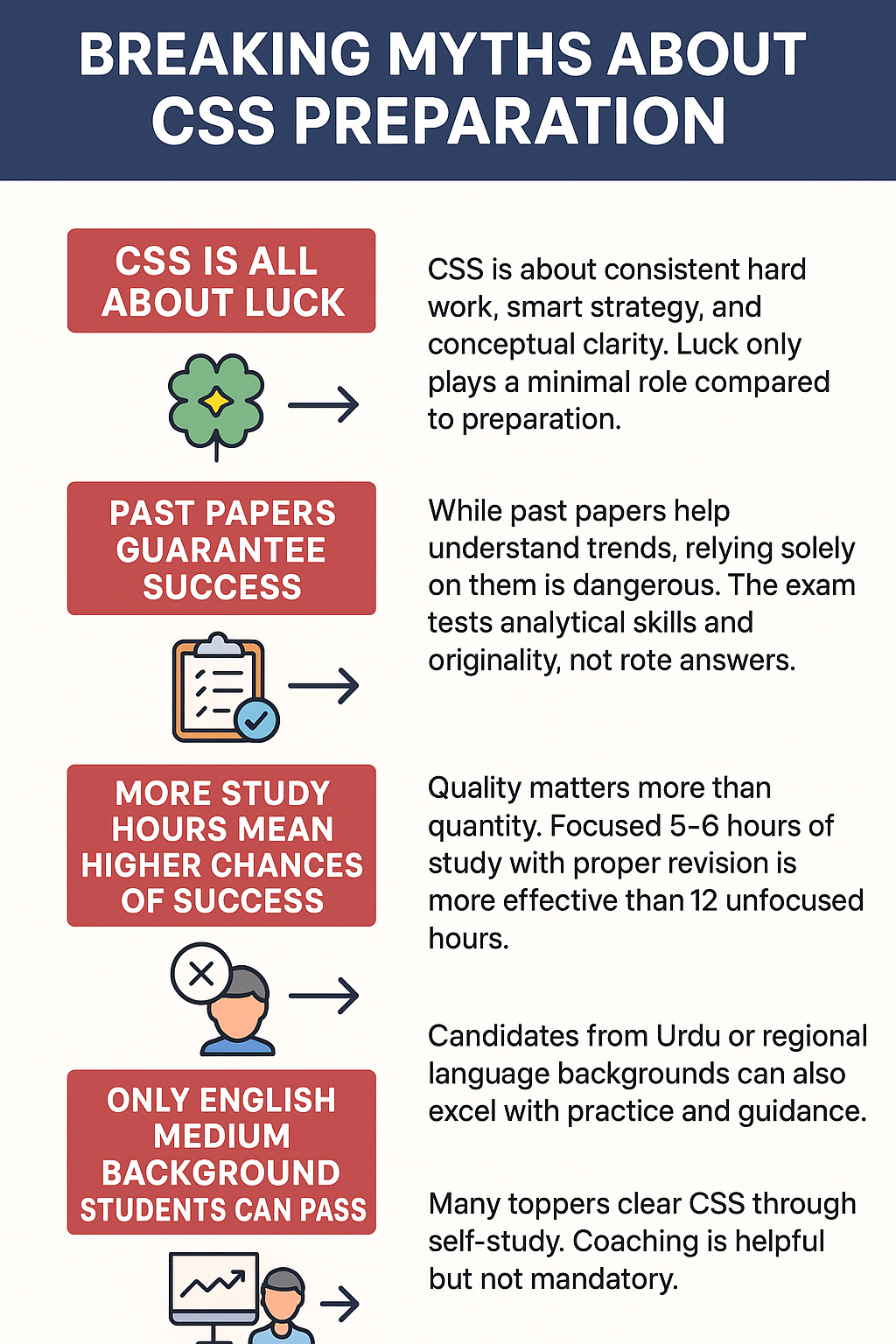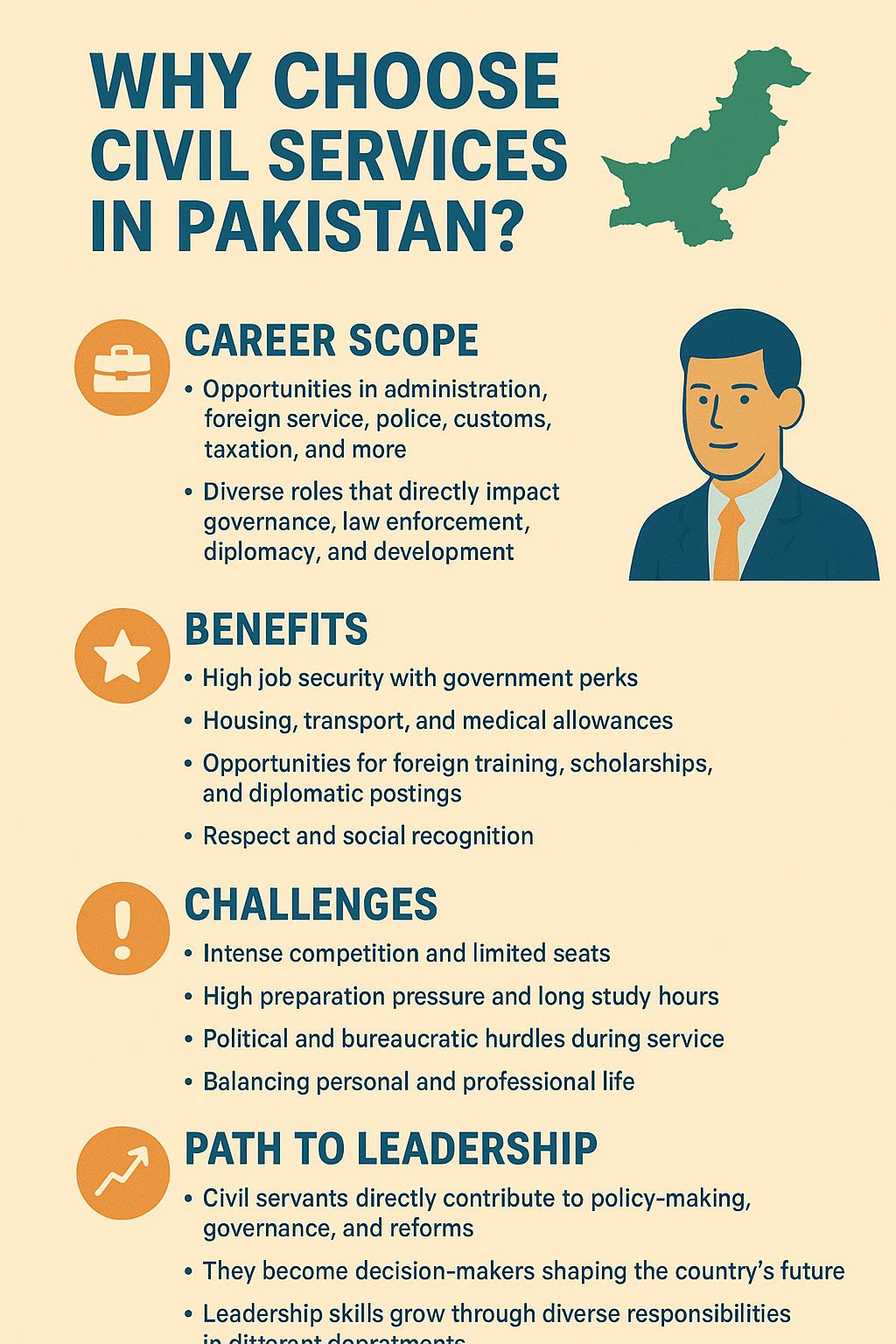“Top Mistakes to Avoid in CSS/PMS Exams: Preparation Tips, Strategy & Common Errors Students Make”
“Top Mistakes to Avoid in CSS/PMS Exams: Preparation Tips, Strategy & Common Errors Students Make”
Every year, thousands of talented candidates take on the challenging Central Superior Services (CSS) and Provincial Management Services (PMS) exams in Pakistan, but only a small fraction pass. Success in these exams isn’t just about intelligence or hard work—it’s about strategic preparation, disciplined execution, and steering clear of common pitfalls. This guide explores the most frequent mistakes aspirants make during their CSS/PMS journey and offers practical advice to avoid them, helping you improve your chances of success.
Here’s a comprehensive guide on what NOT to do during your preparation.
Unrealistic Planning and Overcommitment
One of the biggest errors candidates make is creating unrealistic study plans. Many start with ambitious schedules, aiming to study 12–14 hours daily, cover multiple subjects at once, or finish entire textbooks in a month. While these plans may feel motivating initially, they often lead to burnout, frustration, and a sense of failure when targets aren’t met. Human attention and energy have limits, and cramming too much material in a short time reduces retention and understanding. Instead, design a practical timetable based on your routine, energy levels, and comprehension pace. Aim for 6–8 hours of focused study with breaks, prioritize quality over quantity, and build in flexibility for unexpected delays. Regularly review and adjust your plan to stay on track without overwhelming yourself.
Instead, design a practical timetable based on your personal routine, energy levels, and comprehension pace.
Ignoring the Syllabus and Past Papers
Another critical mistake is ignoring the official syllabus and past papers. Many aspirants dive into preparation without reviewing the Federal Public Service Commission (FPSC) or Provincial Public Service Commission (PPSC) syllabus, wasting time on irrelevant topics. Similarly, neglecting past papers means missing out on question patterns, recurring themes, and the depth of answers expected. To avoid this, start with the official syllabus, available on the FPSC or PPSC website, and use it as your guide. Analyze 5–10 years of past papers to identify high-yield topics and question styles, such as analytical or descriptive formats. Align your resources with the syllabus, focusing on targeted reading, and create a checklist to track your progress, ensuring you cover what matters most.
Solution? Always begin your preparation with the official syllabus, highlight recurring topics from past papers, and stick to targeted reading.
Poor Subject Selection
Choosing the wrong optional subjects is another pitfall that can derail your preparation. Some candidates blindly follow the choices of past toppers or pick subjects based on perceived “scoring trends” without considering their own strengths, interests, or academic background. This can lead to difficulty mastering the material or losing motivation over time. To make smart choices, assess your educational background and writing skills. For example, if you excel at analytical writing, subjects like International Relations or Political Science might suit you. Research each subject’s syllabus and past papers to understand its demands, and consider subjects with overlapping content, like Pakistan Affairs and History, to optimize study time. Consulting mentors or platforms like CogitaVerse can also help you make informed decisions.
Choose subjects that you can understand, analyze, and explain well. Smart selection pays off far more than just choosing so-called “high-scoring” ones.
Rote Learning Without Conceptual Clarity
Relying on rote learning without building conceptual clarity is a common mistake, especially in analytical papers like Essay, Pakistan Affairs, or International Relations. Memorizing facts without understanding their context limits your ability to tackle questions that require critical thinking or original arguments. This approach often fails in the Essay paper, where logical coherence and structured arguments are key. To avoid this, focus on understanding the “why” and “how” behind topics, such as the principles of geopolitics in International Relations. Use active learning techniques like mind maps or summary notes to connect ideas, and practice writing analytical answers to develop your own perspective. Reading editorials and research articles can further deepen your understanding and help you articulate informed arguments.
Try to build concepts, develop your own arguments, and use mind maps or short notes to connect ideas.
Ignoring Writing Practice
Failing to practice writing under timed conditions is another major reason candidates struggle, even after months of study. CSS/PMS exams are written tests, and your ability to express knowledge clearly and within time constraints is critical. Without practice, you may struggle with structuring answers, managing time, or conveying ideas effectively. To address this, simulate exam conditions by writing answers to past paper questions in 40–45 minutes. Write at least one essay per week on topics from past papers or current issues, focusing on clarity and coherence. Seek feedback from mentors, peers, or platforms like CogitaVerse to improve your content and style, and practice a clear answer format with an introduction, body, and conclusion, incorporating relevant facts and analysis.
Practice solving past paper questions, write at least one essay per week, and get feedback from mentors or peers.
Not Preparing for Psychological and Interview Stages
Many candidates overlook the psychological assessment and interview stages, focusing solely on the written exams. However, these stages are crucial, evaluating your personality, emotional intelligence, and suitability for public service. Neglecting them can leave you unprepared to articulate thoughts, handle pressure, or present a confident persona. Start building confidence and a balanced worldview early through reading, discussions, and self-reflection. Participate in mock interviews to practice communication and body language, and familiarize yourself with psychological test formats, such as group discussions or situational judgment tasks. Staying informed about current affairs and ethical dilemmas will also help you shine in the interview.
From the start of your journey, work on building your confidence, personal values, and balanced worldview.
No Feedback or Self-Evaluation
Finally, studying in isolation without feedback or self-evaluation can stall your progress. Without external input, you may repeat mistakes, overestimate your preparation, or miss gaps in your knowledge. Regularly evaluate your progress by sharing answers with mentors or study groups for constructive feedback. Platforms like CogitaVerse can provide guidance and mentorship to keep you on track. By avoiding these mistakes—unrealistic planning, ignoring the syllabus, poor subject choices, rote learning, neglecting writing practice, overlooking later stages, and studying without feedback—you can significantly boost your chances of success. The CSS/PMS journey demands not just hard work but smart work, consistency, and continuous improvement.
Studying in isolation and never evaluating your progress can waste months. Whether it’s essay writing, optional paper answers, or notes—get feedback. Join study groups or use trusted platforms like CogitaVerse for guidance and mentorship.
Conclusion
Avoiding these common mistakes can significantly improve your chances of clearing the CSS/PMS exams. Success in this journey is not just about hard work—it’s about working smart, staying aware, and constantly improving.
Proudly Powered By



